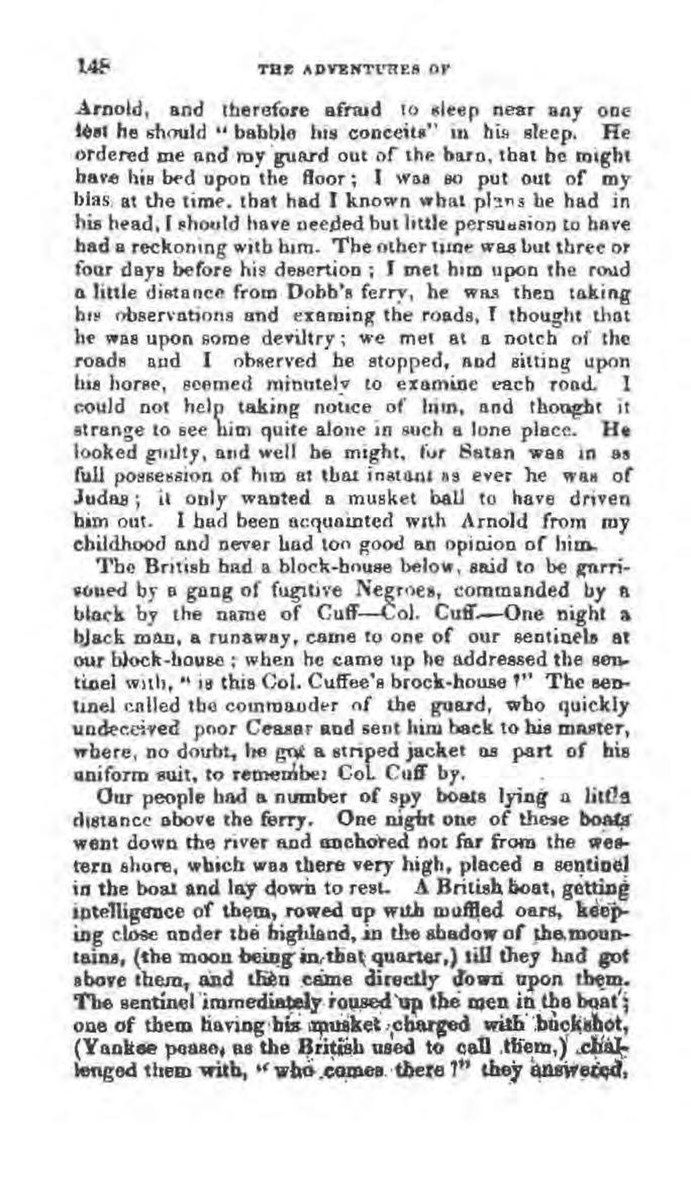Arnold, and therefore afraid to sleep near any one lest he should "babble his conceits" in his sleep. He ordered me and my guard out of the barn, that he might have his bed upon the floor; I was so put out of my bias at the time, that had I known what plans he had in his head, I should have needed but little persuasion to have had a reckoning with him. The other time was but three or
four days before his desertion; I met him upon the road
a little distance from Dobb's ferry, he was then taking
his observations and examing the roads, I thought that
he was upon some deviltry; we met at a notch of the
roads and I observed he stopped, and sitting upon his horse, seemed minutely to examine each road. I could not help taking notice of him, and thought it strange to see him quite alone in such a lone place. He looked guilty, and well he might, for Satan was in as full possession of him at that instant as ever he was of Judas; it only wanted a musket ball to have driven him out. I had been acquainted with Arnold from my childhood and never had too good an opinion of him.
The British had a block-house below, said to be garrisoned by a gang of fugitive Negroes, commanded by a black by the name of Cuff—Col. Cuff.—One night a black man, a runaway, came to one of our sentinels at our block-house; when he came up he addressed the sentinel with, "is this Col. Cuffee's brock-house?" The sentinel called the commander of the guard, who quickly undeceived poor Ceasar and sent him back to his master, where, no doubt, he got a striped jacket as part of his uniform suit, to remember Col. Cuff by.
Our people had a number of spy boats lying a little distance above the ferry. One night one of these boats went down the river and anchored not far from the western shore, which was there very high, placed a sentinel in the boat and lay down to rest. A British boat, getting intelligence of them, rowed up with muffled oars, keeping close under the highland, in the shadow of the mountains, (the moon being in that quarter,) till they had got above them, and then came directly down upon them. The sentinel immediately roused up the men in the boat; one of them having his musket charged with buckshot, (Yankee pease, as the British used to call them,) challenged them with, "who comes there?" they answered,
